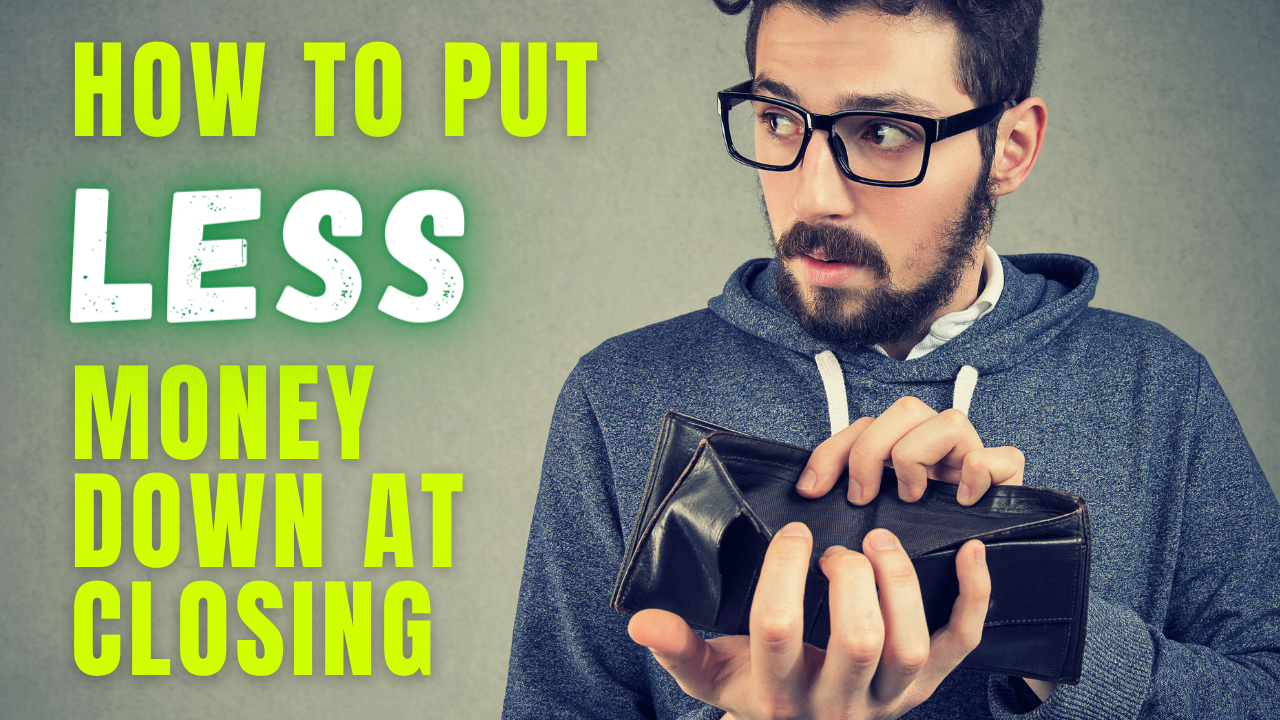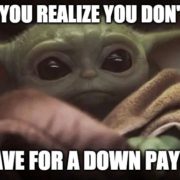How to Put Less Money Down on Your Real Estate Deals
Categories: Blog Posts
How to Put Less Money Down on Your Real Estate Deals
When you put less money down on your real estate deals, you keep more money in your pocket.
Now, if you’re a real estate investor, then chances are you put a lot of focus on positive cash flow.
But what does cash flow really mean?
Well, all investors have a different perspective, but most fall into 3 popular categories:
- Putting less money down.
- Making monthly income.
- Gaining leverage with cash-out refinancing.
All of these cash flow strategies share 2 common similarities:
- Using the BRRRR method.
- Buying discounted properties.
Today, let’s dig deeper into the first cash flow strategy: putting less money down.
Investors who take this approach like to focus on leverage. Limiting the amount of money in each real estate deal leads to higher leverage. Higher leverage means you keep more money in your bank account. But it also means you lower your MONTHLY cash flow.
But that’s okay. It’s not always about monthly income.
It’s also about equity.
Investors who use this strategy aim to limit their initial outflow so they can keep more money in their pocket, and possibly buy more value-add properties with the same money.
What do we mean by that? Well, let’s take a look at a sample:
Let’s say Jane and John each have $50,000 to invest.
Jane decides to buy her property at the full retail value of $250,000 with a 20% down payment.
20% / $250,000 = $50,000
That’s Jane’s entire savings. So, she can only afford to buy the one property and must save up to buy another.
John, on the other hand, decides to use the BRRRR strategy to invest his $50,0000. Because he wants to limit the amount of money he puts down at closing.
So, John finds a wholesale property (aka, a discounted property) for $225,000 that has an ARV of $300,000. He puts $25,000 in for renovations, which leaves him with $25,000 in his bank account. Plus $50,000 of equity. He can use that money to do, well, whatever. That includes buying more value-add properties. We’re talking 2-4 additional houses.
So, while Jane used all of her $50,000 to buy ONE property, John used his $50,000 to buy multiple properties. Or simply live more comfortably.
Does this sound like your kind of cash flow strategy?
If not, no worries. There are still plenty of strategies to take, and our team is here to help you discover which one works best for you. We’re excited to set you on a path that makes you the kind of money you need…to live the life you want.
Happy investing!









